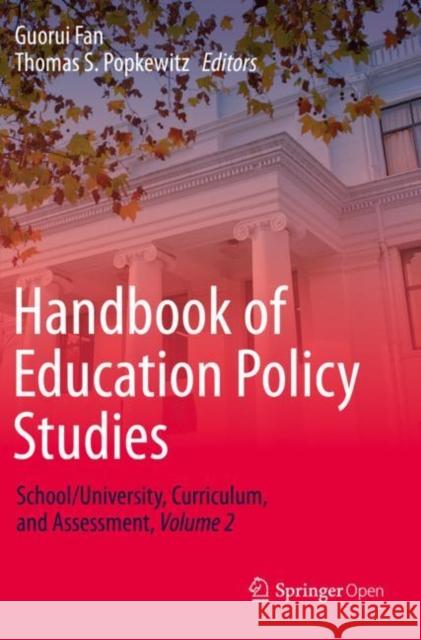Handbook of Education Policy Studies: School/University, Curriculum, and Assessment, Volume 2 » książka
topmenu
Handbook of Education Policy Studies: School/University, Curriculum, and Assessment, Volume 2
ISBN-13: 9789811383458 / Angielski / Miękka / 2020 / 383 str.
Handbook of Education Policy Studies: School/University, Curriculum, and Assessment, Volume 2
ISBN-13: 9789811383458 / Angielski / Miękka / 2020 / 383 str.
cena 201,24
(netto: 191,66 VAT: 5%)
Najniższa cena z 30 dni: 192,74
(netto: 191,66 VAT: 5%)
Najniższa cena z 30 dni: 192,74
Termin realizacji zamówienia:
ok. 22 dni roboczych.
ok. 22 dni roboczych.
Darmowa dostawa!
This open access handbook brings together the latest research from a wide range of internationally influential scholars to analyze educational policy research from international, historical and interdisciplinary perspectives. By effectively breaking through the boundaries between countries and disciplines, it presents new theories, techniques and methods for contemporary education policy, and illustrates the educational policies and educational reform practices that various countries have introduced to meet the challenges of continuous change.
This volume focuses on policies and changes in schools and classrooms. The studies on school changes present the differences in the policies and challenges of K-12 schools and universities in different countries and regions, and in connection with the contradictions and conflicts between tradition and modernization, as well as the changing roles of various stakeholders, especially that of teachers. In terms of curriculum and instruction, many countries have undertaken experiments and introduced changes based on two major themes: “what to teach” and “how to teach”. International education assessments represented by PISA not only promote the improvement and extensive application of educational assessment and testing techniques, but have also had far-reaching impacts on education policies and education reforms in many countries.
Focusing on the changes in educational policies at the micro level, this volume comprehensively reveals the complex interactions between school organizations, teachers, curricula, teaching and learning, evaluation and other elements within the education system, as well as the latest related reforms worldwide.











